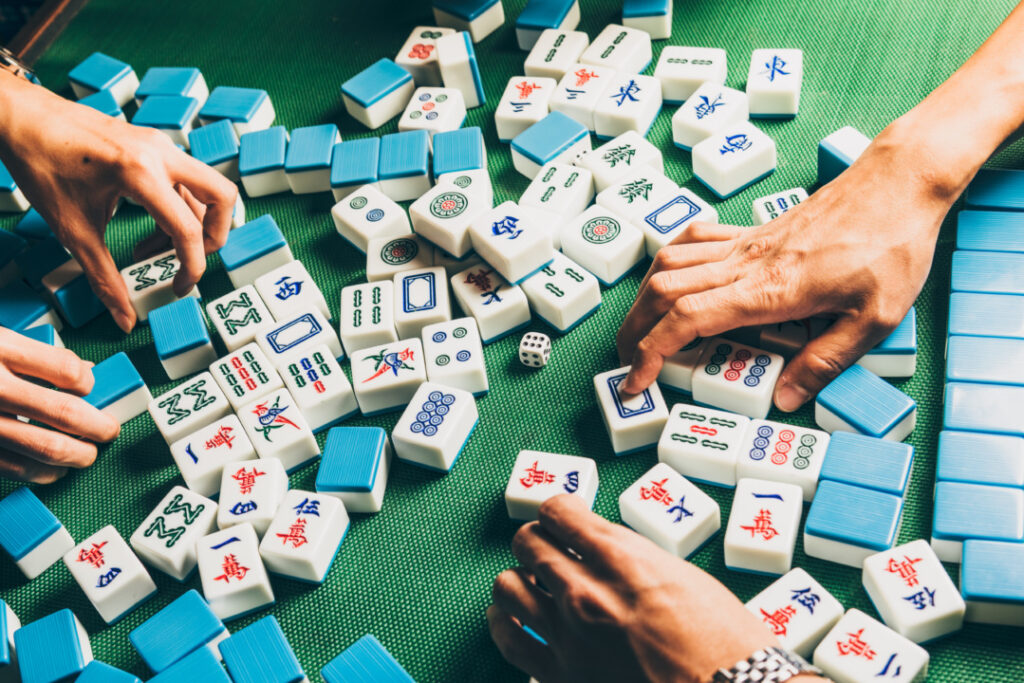Few activities have left a larger global imprint on the wider societies in the world than gambling. Whether it is in the blitz of the Canadian local casino scene or the bustling casino scenery in Macau, few activities attract the kind of following gambling does. Even as we enjoy these activities, an inquisitive mind would ask what the roots of these wagering practices are. A great part of this trade can trace its roots in the Far East.
Betting has been an integral part of Chinese culture for eons, with titles like Keno and earlier iterations of dice games being the prevalent choice for many punters. Today, the legacy of these spinners lives on in modern online casinos like brucebet where gamers get to experience the thrill of wagering in a digital setting while paying homage to centuries-old traditions. Join us as we explore the deep roots of games of chance in Asia.
The Deep Chinese Gambling Roots
Head to any brick-and-mortar casino, and there’s a good chance you’ll find a cluster of Chinese players deep in the throes of their favorite betting games. In this highly cultured far Eastern society, wagering represents more than just a pastime. It’s an ensemble that merges numerology, superstition, luck, and so much more. At the onset, the Chinese imperial system spent loads of time trying to curtail betting. Present-day China also has imposed heavy restrictions on the trade. Be that as it may, if there’s one thing that history has shown us, is that prohibition rarely succeeds.
Over the years, betting has thrived in the background, even with the communist ruling party in the country promising to “eradicate the great social ill”. From the neon-lit streets of Macau, the love of games of chance has been embedded into the Chinese social fabric for a long time now. From as far back as 3000 BC, inhabitants of this Far Eastern society had started using dice-like objects to wager. By 1000 BC, there was already evidence of Chinese gambling houses where early lottery-styled games, animal fights, dice, and mahjong games dominated the scenery.
What if we told you that the legendary Great Wall of China owes part of its existence to gaming? A story is told of how in 200BC, a game known as “white pigeon,” which was a primitive form of modern-day Keno, was used to fund the construction of the legendary wall. Having gotten a taste of what the gambling scenery in Ancient China entailed, let’s explore the trade through other gambling titles.
Keno
When you talk of betting traditions in the land of the dragons, few games embody the practice more than Keno. Over the years, this game’s history has been shrouded in mystery and full of conflicting reports. Our deep-rooted search for answers, however, brought us three main points that explained the title’s complex history in the Celestial Empire.
A Great War Births an Epic Game
In the 2nd Century, the great Ancient Eastern civilization was in the midst of a raging war. As great students of history will attest, war is a costly affair that always depletes the cash reserves of any country. Faced with a cash crisis, Emperor Cheung Leung of the Han Dynasty needed an alternative to extend his military campaigns. He turned to the White Pigeon game. This lottery-styled game was named after pigeons that were used to deliver results to villagers. At that time, this title proved to be fundamental in helping the empire fund the war, but also kept lots of people entertained.
The deep-rooted connection between China and Keno extended to the construction of the Great Wall of China, a factor that solidified its presence in the country’s cultural history.
Keno’s Evolution to the Digital Age
With the rise of iGaming, keno online has revolutionized how the game is played without the limits of geography. Whether in present-day Beijing or Ottawa, Keno continues to captivate punters proving the timeless aspect of the age-old wagering tradition.
Mahjong
Even with the popularity of Keno, another iconic game, Mahjong, emerged in the mid-19th century. This title was developed in Southern China towards the end of the Qing Dynasty. Developed as a mainly male-dominated gambling activity, the game’s name meant “sparrow” in the southern Chinese dialect. It is widely believed to have evolved from an ancient game in the Imperial Dynasty called Madiao. Over time, different regional variations of this game have emerged, with the game sporadically spreading to the West to countries like Canada and the United States.
Sic Bo
Unlike strategy-based titles like Mahjong, this high-octane game of chance is purely determined by luck. With a history dating back thousands of years in the Middle Kingdom, this game was originally played with bricks or stones before evolving into its modern version that uses dice. This spinner was particularly popular among Chinese laborers, and it sporadically spread to gambling joints across China. Over the years, this game has continued to capture the hearts of gamblers across the Chinese country, and across the world mainly due to its unpredictability aspect.
An Enduring Long-Lasting Legacy
Whether you’re an avid punter or a novice, these Chinese-originating games open you to a world of unique experiences. Take in the strategy, luck, and excitement aspects of these titles. You will be enriched by the cultural tapestry of these games and find a suitable pastime.







